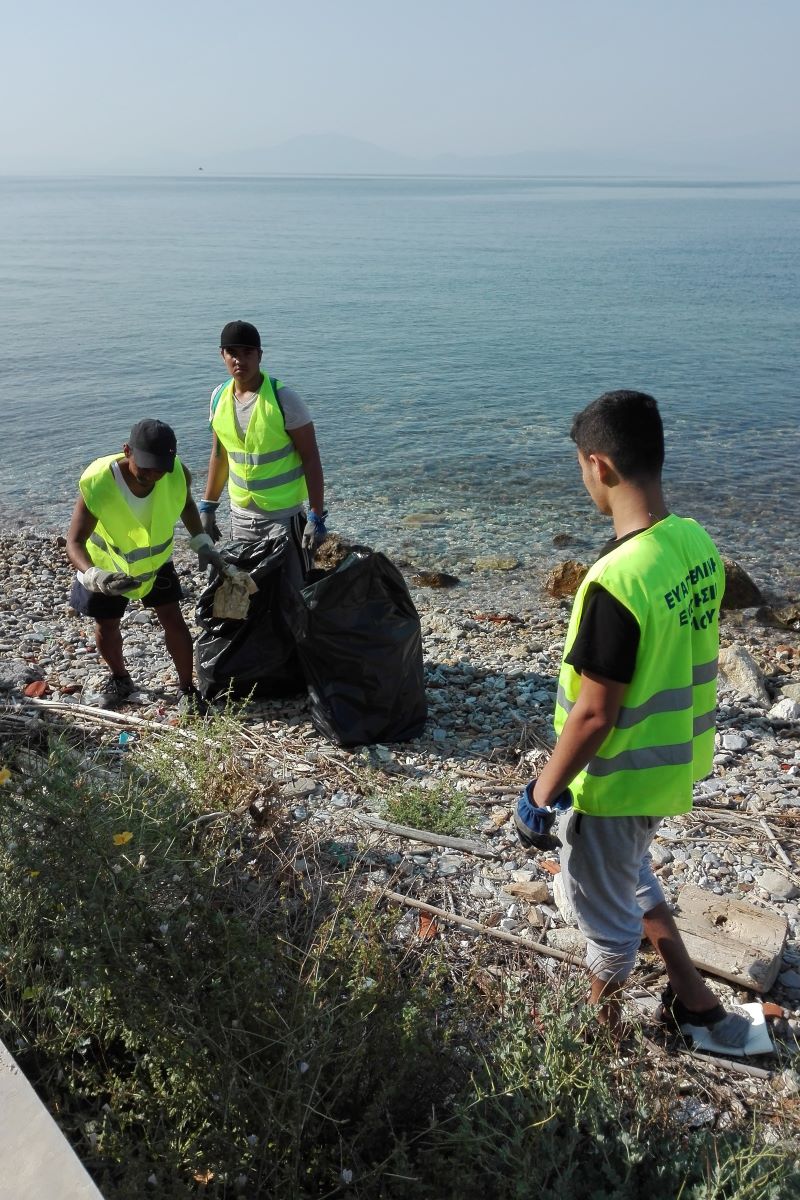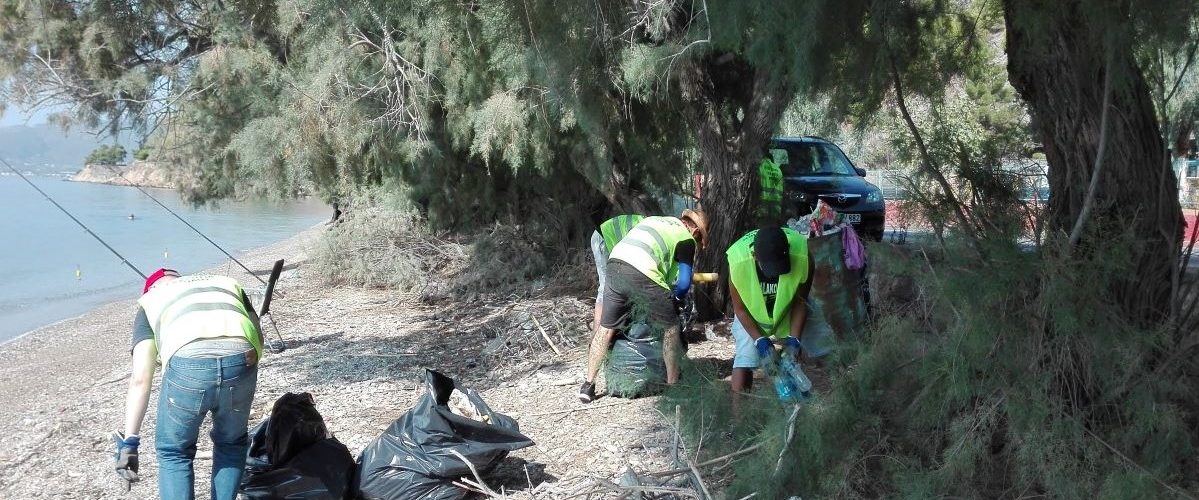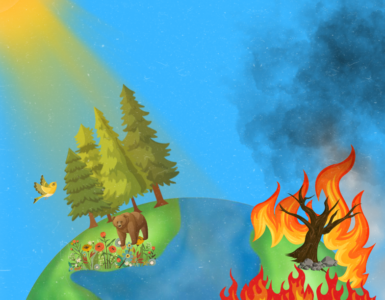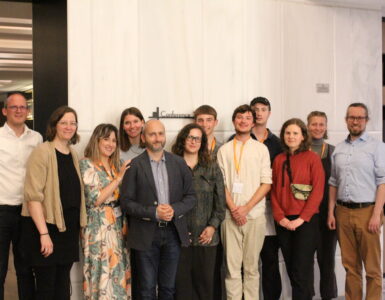This article recounts a personal experience of mine.
My bus trip to the region of Magnesia, and its capital Volos, lasted four hours. The closer we got, the more we were surrounded by countryside. By the time we arrived, I was so enchanted by the beauty of the landscape around me that I completely forgot how tiring the journey had been.
However, while on the bus I had noticed something really upsetting: that people were throwing rubbish from their cars. Actually, that was the purpose of the expedition: to remove rubbish from roads and the surrounding countryside. We did this for four days, working five hours per day.
The burning summer sun made the task quite challenging, but the force of nature both invigorated and calmed me. I joined this outing as a volunteer and I learnt quite a few things that I hadn’t previously paid attention to.
Of the 100 bags of rubbish that we collected, 90% consisted of plastic, 5% paper, 2% metal and 3% various other materials. The result is that our planet has become very polluted. A large part of what we throw away is not biodegradable; consequently, our planet is being slowly destroyed.
The main cause of this damage is purely and simply overconsumption and people’s disregard of the consequences.
Unfortunately, a large number of people are unaware of these negative effects. In some countries, there is no access to information about the impact of these practices, nor about the causes.
The main drawback in environmental preservation is that it does not have enough supporters to hold the problem in check and ultimately reduce it. Our planet is on a daily road to destruction, yet no one appears to give adequate attention to this very serious matter.
And this begs a very interesting question, which concerns me: Who is responsible and who is answerable for the rights of future generations?
As far as I am concerned, we ought to concentrate on this problem, to go forward hand in hand in order to restore harmony to nature and become an example for the generations of tomorrow.










Add comment